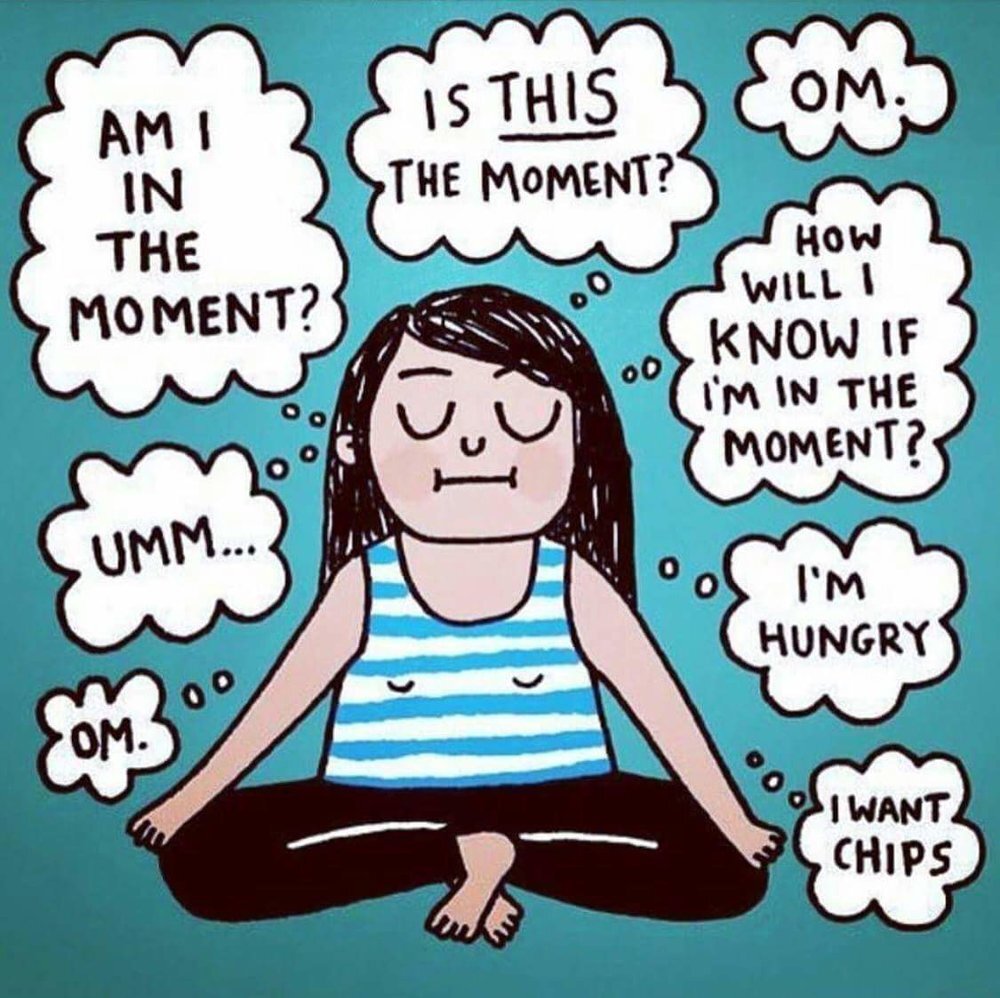How Mindfulness Meditation Can Improve Your Test Score
If you haven’t heard about the many benefits of meditation, you may have been living under a rock for the past decade or so. Meditation has been credited with reducing symptoms of anxiety and depression, enhancing memory and creativity, and even preventing asthma attacks. The practice has been embraced by schools, workplaces, and neuroscientists -- and everyone seems to be getting on board.
Well -- almost everyone.
When I ask the students I’m tutoring about meditation, the conversation usually goes something like this:
“Have you tried meditating?”
“Yeah, I used to meditate… it was nice… but then I got busy with work… or studying, or taking care of my dog, or washing my hair, or literally anything other than meditating.”
I get it. Asking an extremely busy person -- especially an ambitious professional who already struggles to find time to study for standardized tests -- to add one more task to their daily routine would presumably increase stress, and that’s not what we’re going for here.
But still: there’s all sorts of evidence that meditation can improve your scores on tests like the GRE, GMAT, LSAT, and Executive Assessment.
The Impact of Mindfulness Meditation on Test Scores
The literature is pretty clear. If you’re feeling anxious about taking a test, mindfulness meditation has a good chance of improving your performance on test day.
This study took a look at students that were studying for the GRE and tasked them with a short course of practice in mindfulness meditation. The study found improvements “analogous to 16 percentile points” on the GRE after just two weeks of mindfulness meditation.
Specifically, mindfulness training helped students overcome a tendency for their minds to wander during the test. And this effect doesn’t need to be unique to the GRE. Mindfulness counteracts the effects of distracting thoughts (“I suck at the GMAT/EA, I’m never going to get into a good MBA program!”) and allows any test-taker to focus on the task at hand.
Using Meditation to Your Advantage on Standardized Tests
If we’re going to credit mindfulness with impressive score-improving abilities on tests like the GRE, LSAT, and more, it’s useful to understand what mindfulness actually is.
I like the definition from the Headspace app: “Mindfulness is the quality of being present and fully engaged with whatever we're doing at the moment — free from distraction or judgment, and aware of our thoughts and feelings without getting caught up in them.”
Meditation is the practice that allows you to achieve this quality of consciousness. By bringing your breath and the rise and fall of your thoughts into your awareness, you can start to disrupt the patterns that are hurting your performance on your test day.
While this may sound simple, it can be difficult to know whether you’re “doing it right” and therefore getting any benefit from your meditation practice.
If you’re not sure where to start, I recommend starting with a daily meditation app. There are a couple that we really like, and to familiarize you with a few options we’ve developed a simple starter program for test-takers that want to increase their scores with meditation
Mini-Mindfulness Program to Stay Calm on Exam Day
Day 1: Download the Waking Up app and complete the first guided meditation (10 minutes)
Day 2-5: Complete the next four guided meditations (10-15 minutes each)
Ideally, choose a time of day to add meditation to your regular routine and complete one session each day.
Day 6: Download the Headspace app
When prompted, fill in information about your experience level and whatever else they ask. Designating yourself as a “student” will help you navigate to the programs most useful for your GRE, GMAT, LSAT, or EA studies.
Complete Day 1 of the 10 day “Basics” course (3-10 minutes).
Day 7-15: Complete the next 9 sessions of the Basics course (3-10 minutes each)
Take a look through the other Headspace course offerings. The “Dealing with Distractions” course is geared toward students and might be a good place to start.
Day 16: Decide how to continue your mindfulness practice
You can continue with Waking Up (currently $14.99 per month), Headspace Plus (currently $12.99 per month) or choose to use a different app/program.
More Mindfulness Meditation Test-Taking Resources
For additional motivation, here are some stories from GMATClub users who found meditation to be key to their success:
@psevak found meditation to be “by far the most influential reason” for a massive improvement from 470 to 730 on the GMAT over the course of 10 months.
@shaarang realized that performance-related anxiety was the root cause of his underperformance on the GMAT, and used mindfulness to achieve a final score of 740.
@ajit_223 realized that his “biggest issue was to stay calm.” To fix this issue he used meditative practices detailed in this post, and eventually scored a 750 on the GMAT.
For more on mindfulness training, check out this video on how mindfulness meditation can improve your GMAT score.


